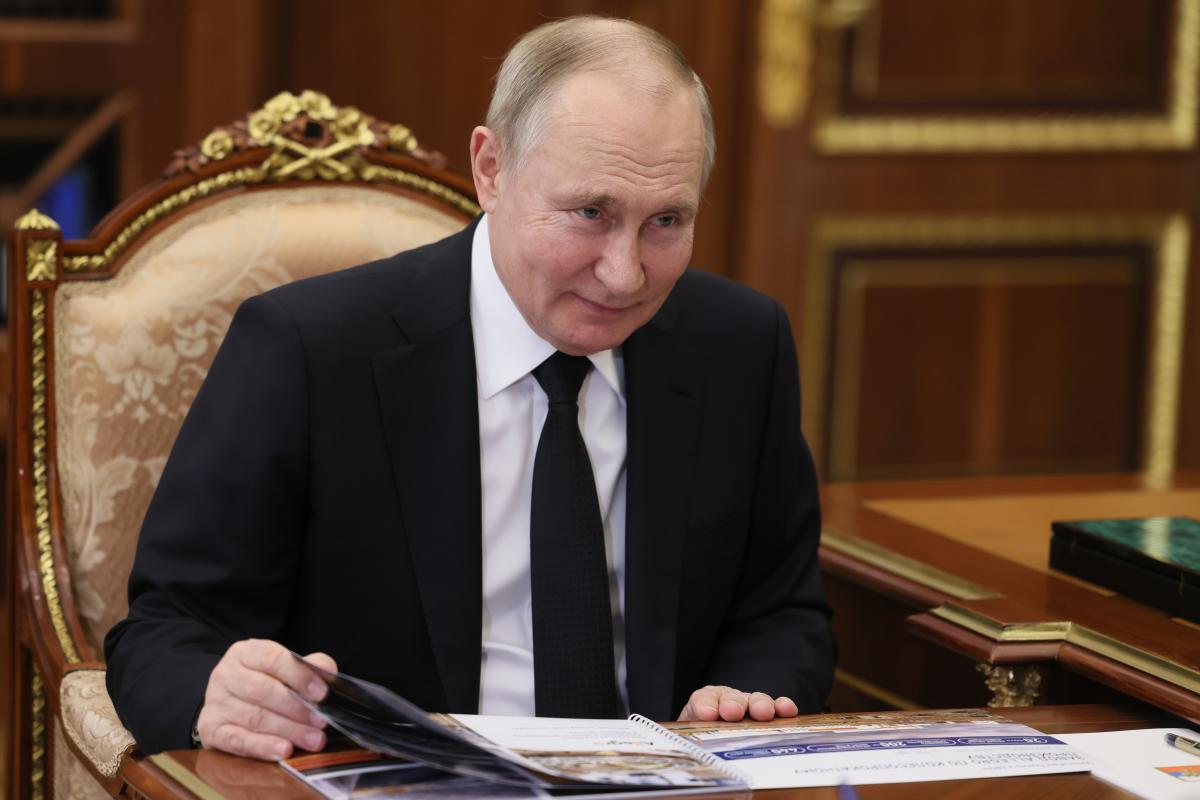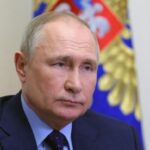
KYIV, Ukraine (AP) — Russian President Vladimir Putin on Wednesday hailed the annexation of Ukrainian territories as a major achievement and said his country’s nuclear weapons serve as a tool of deterrence in the war that the Kremlin calls a “special military operation.”
Speaking with members of the presidential Human Rights Council, Putin described the land gains as “a significant result for Russia,” noting that the “Sea of Azov has become Russia’s internal sea.” He added that “Peter the Great fought to get access to the Sea of Azov.”
Russia seized broad swaths of southern Ukraine in the opening days of its invasion of Ukraine and captured the key Sea of Azov port of Mariupol in May after a nearly three-month siege. In late September, Putin illegally annexed four regions of Ukraine: Kherson and Zaporizhzhia in the south, and Donetsk and Luhansk in the east.
Asked by a member of the Human Rights Council to pledge that Russia would not be the first to use nuclear weapons, Putin demurred, saying Russia would not be able to use nuclear weapons at all if it agreed not to use them first and then cames under a nuclear strike.
“If it doesn’t use it first under any circumstances, it means that it won’t be the second to use it either, because the possibility of using it in case of a nuclear strike on our territory will be sharply limited,” Putin said.
Putin, who has repeatedly said that Russia was ready to use “all available means” to protect its territory, including the annexed areas of Ukraine, rejected Western criticism that those statements amounted to nuclear saber-rattling.
“We haven’t gone mad. We are fully aware of what nuclear weapons are,” Putin said. “We have them, and they are more advanced and state-of-the-art than what any other nuclear power have.”
The Russian leader said reminders of his country’s nuclear arsenal were “not a factor provoking an escalation of conflicts, but a factor of deterrence.”
His claim more than two months ago that the annexed regions belonged to Russia came after the Russian military lost ground to a Ukrainian counteroffensive and followed hastily staged “referendums” that were rejected by Ukraine and its Western allies as a sham.
In his televised remarks Wednesday, the Russian leader didn’t address the setbacks or Moscow’s stalled offensive to cement control over the seized regions.
Last month, Russian troops withdrew from a large part of the Kherson region, including the regional capital, and Ukrainian forces reclaimed the area on the west bank of the Dnieper River. In response to recent attacks that struck air force bases deep inside Russia, Russian officials are working to strengthen defensive positions near the country’s border with Ukraine.
In Russia’s Kursk region, the governor posted photographs of new concrete anti-tank barriers — known as “dragon’s teeth” — being set up in open fields. Anti-tank barriers also were being expanded in the neighboring Russian region of Belgorod, while officials said local “self-defense units” were being organized.
Two strategic Russian air bases more than 500 kilometers (300 miles) from the Ukraine border were struck Monday in drone attacks. Moscow blamed Ukraine for the strikes, and said modified Soviet-era reconnaissance drones were used to deliver the explosives.
Ukraine typically does not claim responsibility for high-profile attacks.
Moscow responded to the base attacks by unleashing a wave of strikes on Ukrainian territory, using artillery, multiple rocket launchers, missiles, tanks and mortars to fire at residential buildings and civilian infrastructure, compounding damage already done to the power supply network.
Private Ukrainian power utility Ukrenergo said temperatures in eastern areas where it was carrying out emergency repairs had dropped to as low as minus 17 degrees Celsius (near zero degrees Fahrenheit).
Defending the power grid has emerged as a major factor of the nine-month war in Ukraine as Russia responds to losses in territory captured in the east with infrastructure attacks.
During the long meeting with the Russian Human Rights Council, Putin discussed the mobilization of 300,000 reservists that he ordered in September to beef up troops fighting in Ukraine, Putin said that so far only about 150,000 of them have been deployed to combat zones and the rest were still undergoing training elsewhere.
Addressing media allegations that the Kremlin could be preparing another wave of mobilization, Putin denied having such plans.
“In the current conditions, it makes no sense to talk about any additional mobilization efforts,” he said. “There is no need for the Defense Ministry and the country to do that.”
Putin vowed that Russia would press its goals in Ukraine, that “we will consistently fight for our interests.” “We will protect ourselves using all means available,” he said.
___
Follow AP’s coverage of the war in Ukraine: https://apnews.com/hub/russia-ukraine




